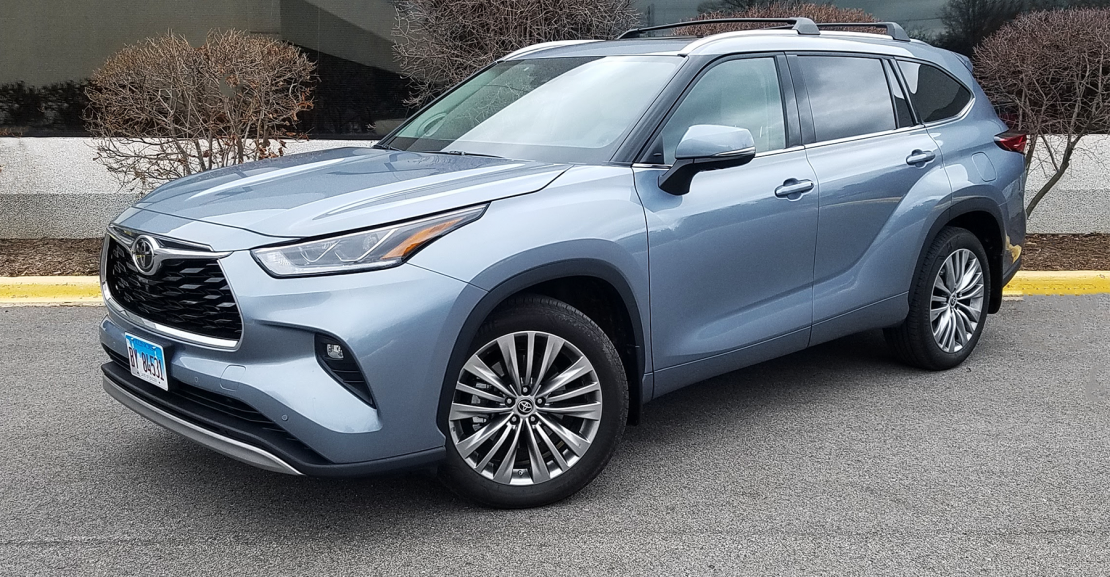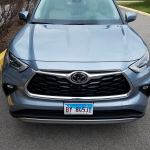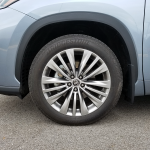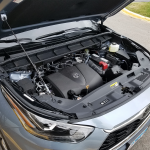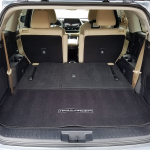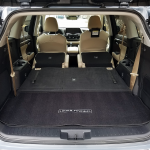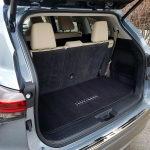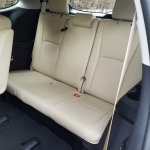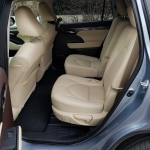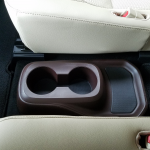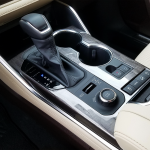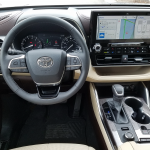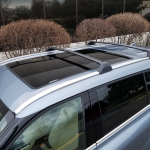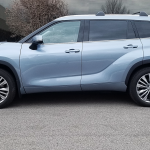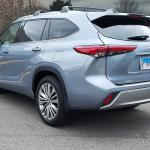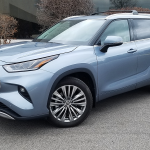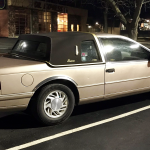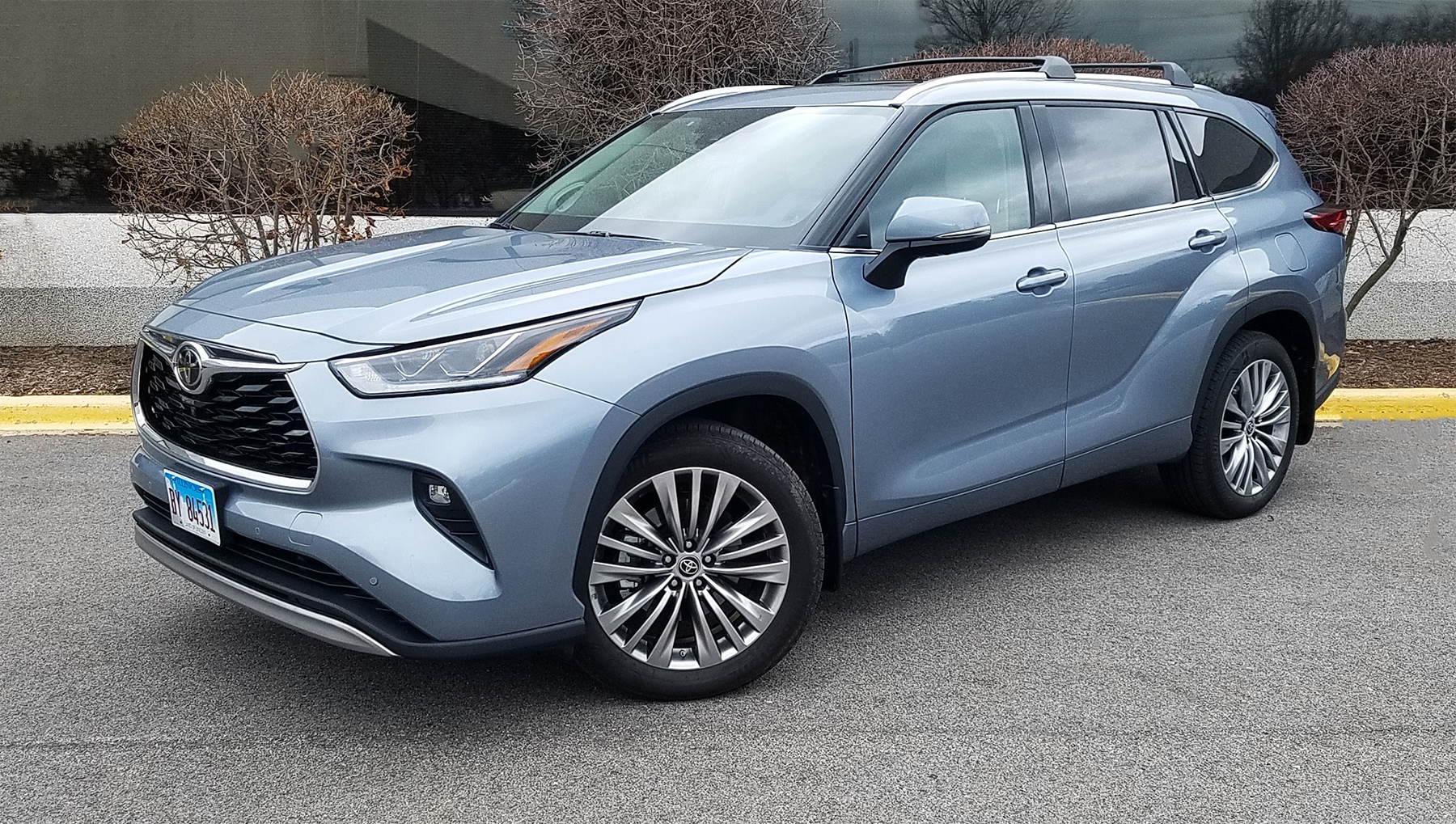
 2020 Toyota Highlander Platinum AWD
2020 Toyota Highlander Platinum AWD
Class: Midsize Crossover SUV
Miles driven: 298
Fuel used: 14.0 gallons
| CG Report Card | |
|---|---|
| Room and Comfort | A- |
| Power and Performance | B+ |
| Fit and Finish | A |
| Fuel Economy | B |
| Value | B+ |
| Report-card grades are derived from a consensus of test-driver evaluations. All grades are versus other vehicles in the same class. Value grade is for specific trim level evaluated, and may not reflect Consumer Guide's impressions of the entire model lineup. | |
| Big & Tall Comfort | |
| Big Guy | A |
| Tall Guy | A |
| Big & Tall comfort ratings are for front seats only. "Big" rating based on male tester weighing approximately 350 pounds, "Tall" rating based on 6'6"-tall male tester. | |
| Drivetrain | |
| Engine Specs | 295-hp 3.5-liter |
| Engine Type | V6 |
| Transmission | 8-speed automatic |
| Drive Wheels | AWD |
Real-world fuel economy: 21.3 mpg
Driving mix: 45% city, 55% highway
EPA-estimated fuel economy: 20/27/23 (city, highway, combined)
Fuel type: Regular gas
Base price: $48,800 (not including $1120 destination charge)
Options on test vehicle: Special color ($425), carpeted floor mats/cargo mat ($318), cargo cross bars ($350), universal tablet holder ($99)
Price as tested: $51,112
Quick Hits
The great: Expanded cargo volume; long list of comfort and convenience features; classy cabin trim
The good: Pleasant ride and driving manners; satisfying acceleration
The not so good: Third row seat is best suited for kids
More Highlander price and availability information
John Biel
More Highlander with more to it is Toyota’s plan for its 3-row midsize crossover sport-ute in 2020. It is redesigned on a new platform that’s 2.4 inches longer overall—with the added length at the rear to expand cargo volume—and gifted with several new convenience features. Considering the exceptional contenders in the class, particularly the all-new Kia Telluride and Hyundai Palisade, the moves were practically mandatory.
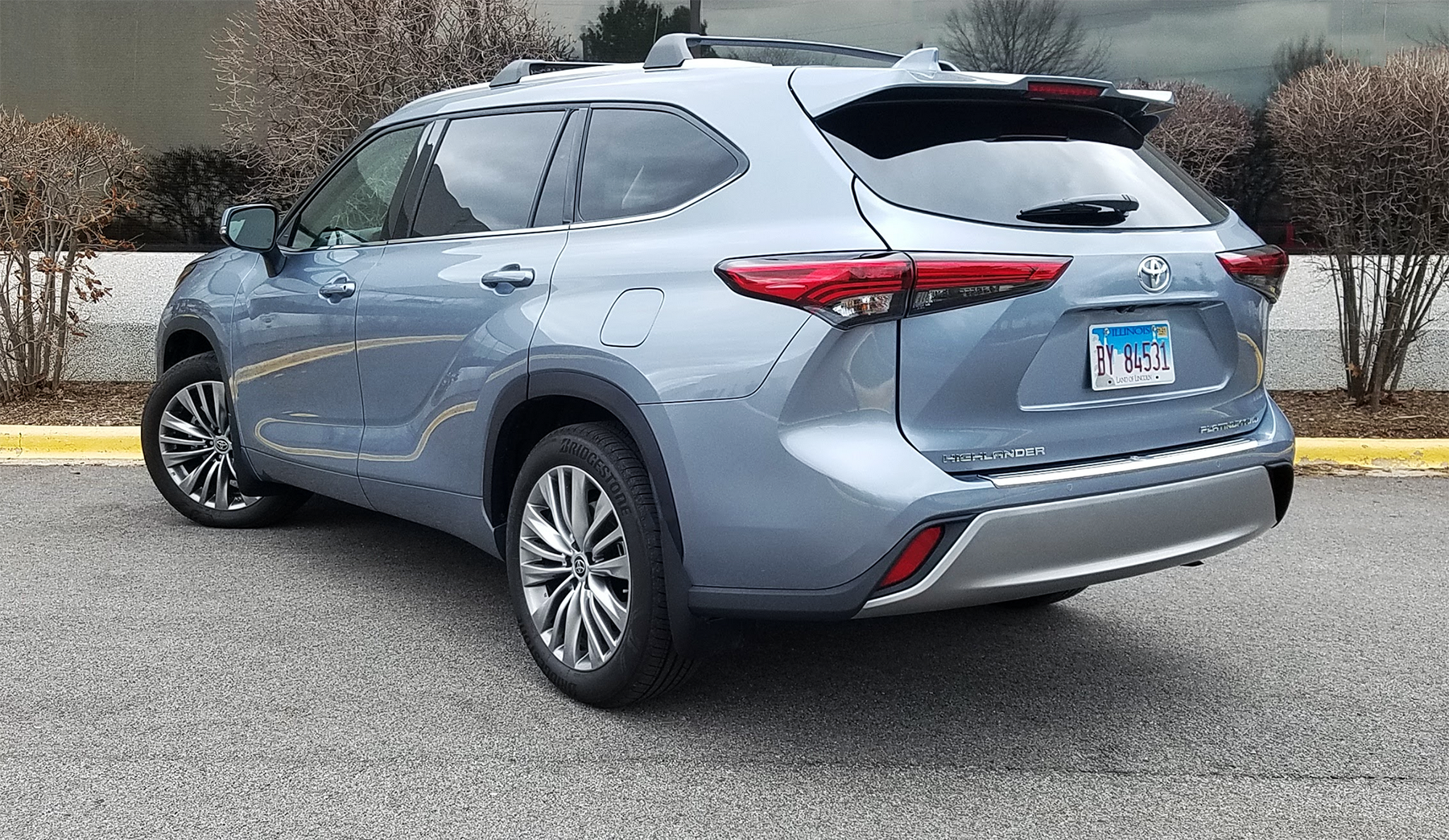
The redone Highlander comes in five gas and four hybrid trim levels, all with a choice of front- or all-wheel drive. Consumer Guide tested a top-of-the-heap gas-engine Platinum with AWD. Base price, with delivery, is $49,920 (the torque-vectoring all-wheel drive adds $1950 to the cost of a Platinum), and the test vehicle came to $51,112 with extra-cost Moon Dust paint and a trio of relatively inexpensive options.
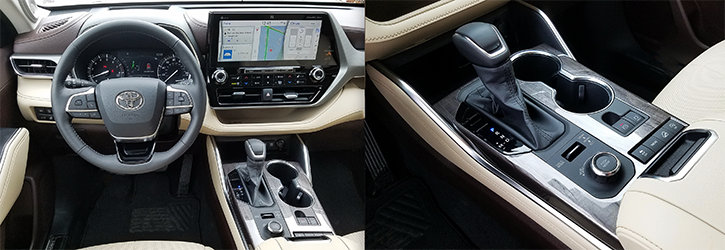
The sole engine offering for gas-only Highlanders is the carried-over 295-horsepower 3.5-liter V6 mated to an 8-speed automatic. (A 2.7-liter four that had been the base engine in prior years has been dropped for 2020.) Smooth and powerful overall, the V6 responds well from a standing start, and takes advantage of snappy transmission kickdown for good passing power in highway driving. There’s a slim improvement in eagerness when “Sport” mode is activated. In a 78-mile test stint with 30 percent city-type driving, this reviewer recorded 20.8 mpg. The EPA projects a V6 AWD Highlander for 20 mpg in city use, plus 27 mpg on the highway and 23 combined.
Test Drive: 2020 Ford Explorer Platinum
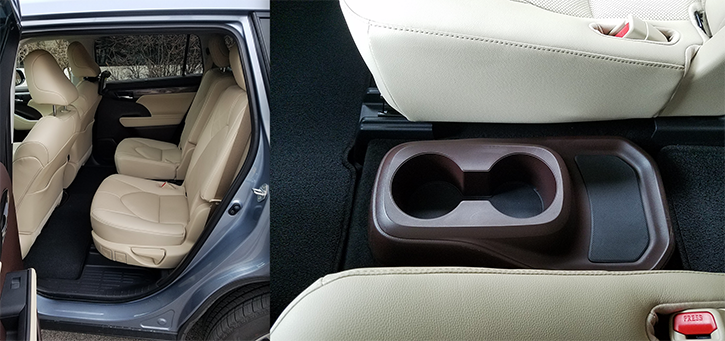
Ride and handling are examples of classic crossover execution, with driving ease and passenger comfort at the forefront. The ’20 Highlander’s size gain isn’t just in body length. The wheelbase is stretched by 2.4 inches as well, a factor in ride that is nicely composed and resistant to most bumps. The only handling issue this tester encountered was a need for regular steering correction in blustery crosswinds.
First Spin: 2020 Toyota Highlander
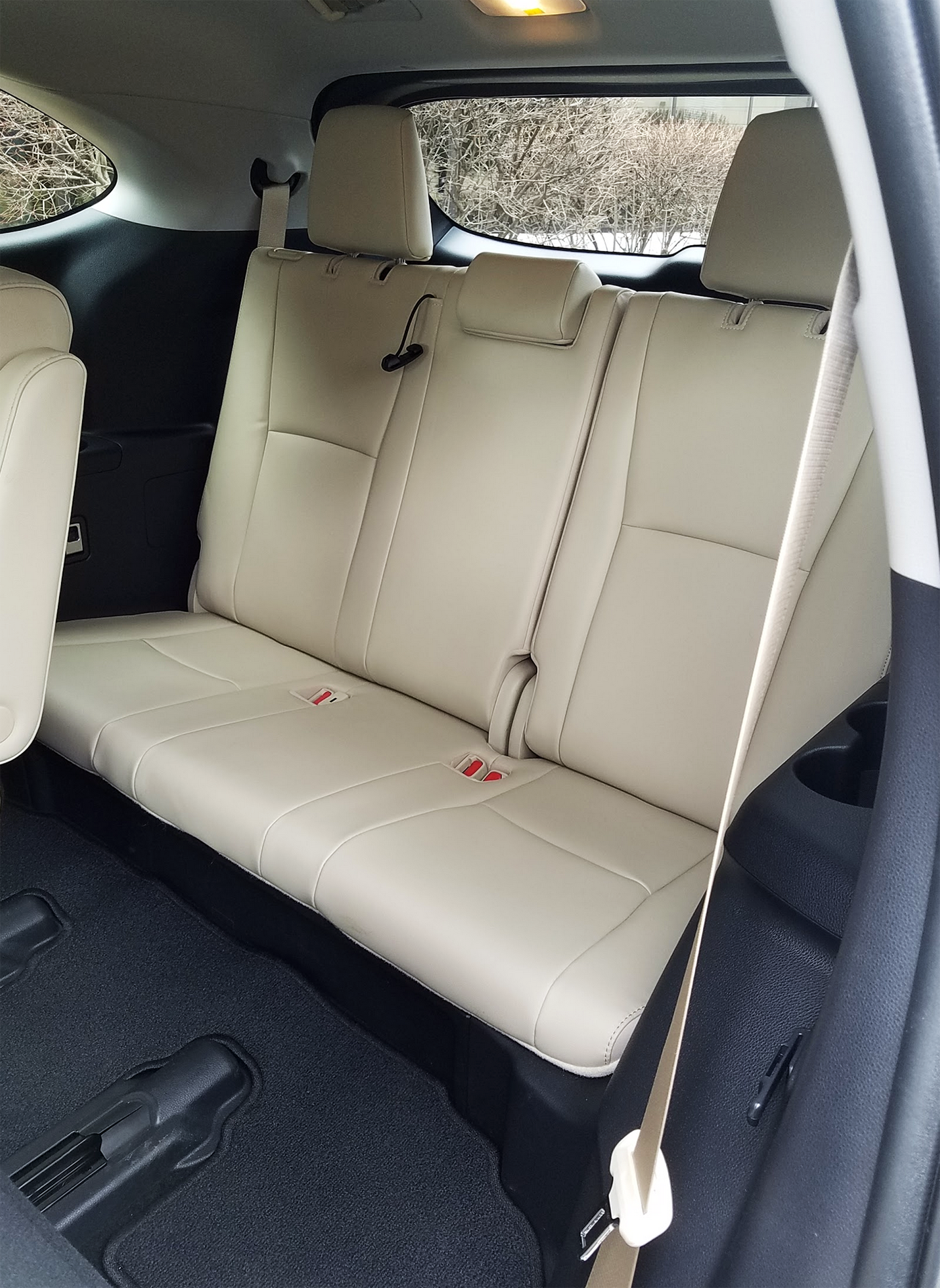
With the expanded body dimensions, cargo capacity is increased regardless of seating configuration—maximum capacity with the flat-folding second- and third-row seats retracted has been raised to 84.3 cubic from 78.6 cubic feet in 2019. The Highander Platinum comes standard with a hands-free power liftgate. A sizeable left sidewall indent and some wide, shallow space under the rear cargo floor (with a slot for stowing the cargo cover when not needed) add to the vehicle’s cargo-carrying flexibility.
Numerous features added for 2020 finally bring the Highlander up to par with the rest of the field. They include Apple CarPlay/Android Auto smartphone connectivity, Amazon Alexa compatibility, Qi wireless charging, a 10-inch head-up display (with speedometer, road-sign recognition, and navigation information in V6 models), a Wi-Fi hotspot, an infotainment touchscreen expanded to 12.3 inches, and a digital rearview mirror that can project an unobstructed camera image in the mirror. All are standard on the Platinum. Another upgrade, this one built into all Highlanders, is the 2.0 version of the Toyota Safety Sense package of safety and driver-assistance features: forward-collision warning with emergency braking and pedestrian detection, lane-departure warning and mitigation, automatic high-beam headlights, lane-trace assist, road-sign recognition, and full-speed adaptive cruise control.
Test Drive: 2020 Kia Telluride SX
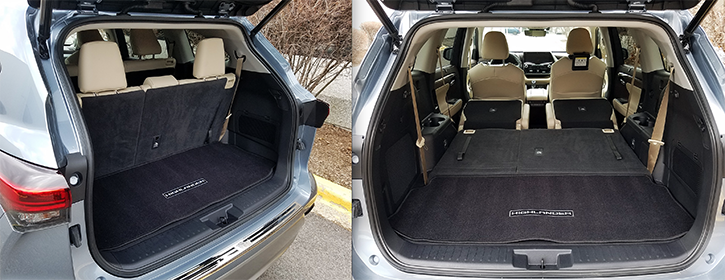
There’s more to the Highlander Platinum. Other standard features are 20-inch alloy wheels, LED headlights and fog lights, heated power mirrors with puddle lamps, panoramic sunroof, and rain-sensing windshield wipers. Upholstery is leather. Power-adjustable front seats are heated and ventilated, and the second-row captains chairs are heated. The climate system is trizone; the audio setup is an 11-speaker JBL unit with satellite radio. Rear obstacle detection with automatic braking and blind-spot/rear cross-traffic alerts are included too.
Test Drive: 2020 Hyundai Palisade Limited
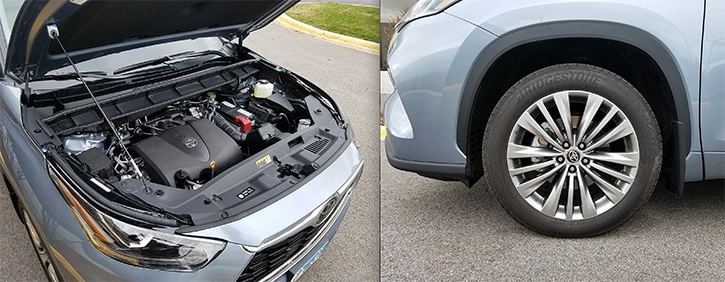
Passengers will find the top-line Highlander eminently habitable. There’s fine head- and legroom in the front two rows on comfortable seats. You’ll be able to fit actual adults in third-row seats, albeit not for long, and they can’t be taller than about 5-foot-10. Plenty of soft, pliable surfaces are deployed about the cabin. Audio controls are essentially intuitive and easy to work on the big, colorful horizontal touchscreen. (External volume and tuning knobs are handy.) Climate relies on lots of repetitive-push buttons, but second-row passengers get a thorough bank of controls that they can work for themselves. Personal items can be stashed in a big, configurable console box that also houses the flip-up wireless charger pad; the good-sized glovebox; a small pull-out drawer to the left of the steering column; a pouch on the back of each front seat; and large pockets in all doors. There are open cup holders in the console, in the floor-level tray between the second-row seats, and in the hard-plastic sidewalls of the third row.
It’s a good thing for the Highlander—and those thinking of buying one—that it has been brought in line featurewise with the new and well-equipped competitors in its group. But catching up isn’t leading. Shoppers in this segment have several excellent choices and can afford to be choosy. Perhaps they’ll find that more Highlander is just what they need.
Test Drive: 2019 Nissan Pathfinder Rock Creek Edition
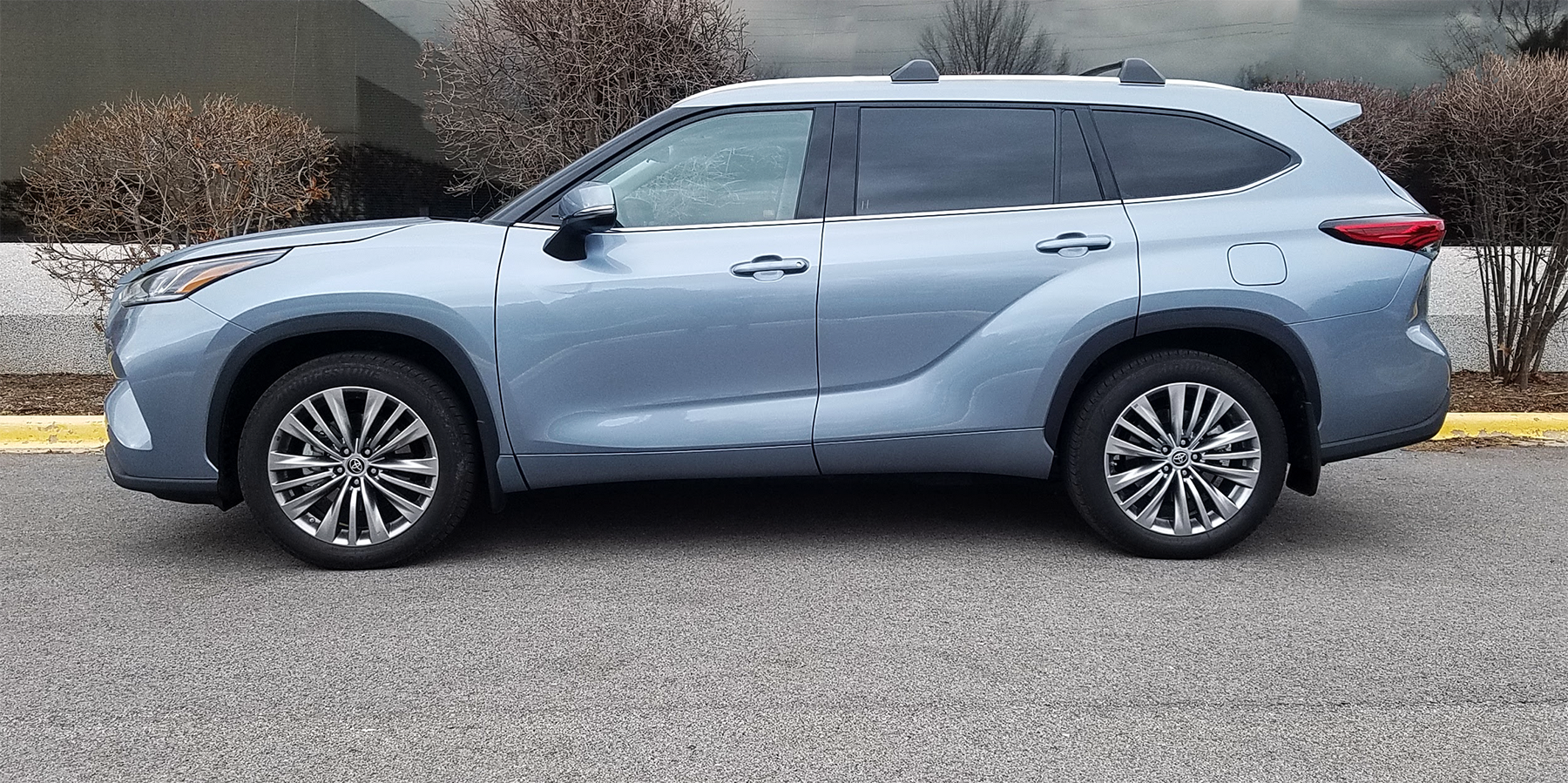
Listen to the Consumer Guide Car Stuff Podcast
2020 Toyota Highlander Platinum Gallery
2020 Toyota Highlander Platinum

